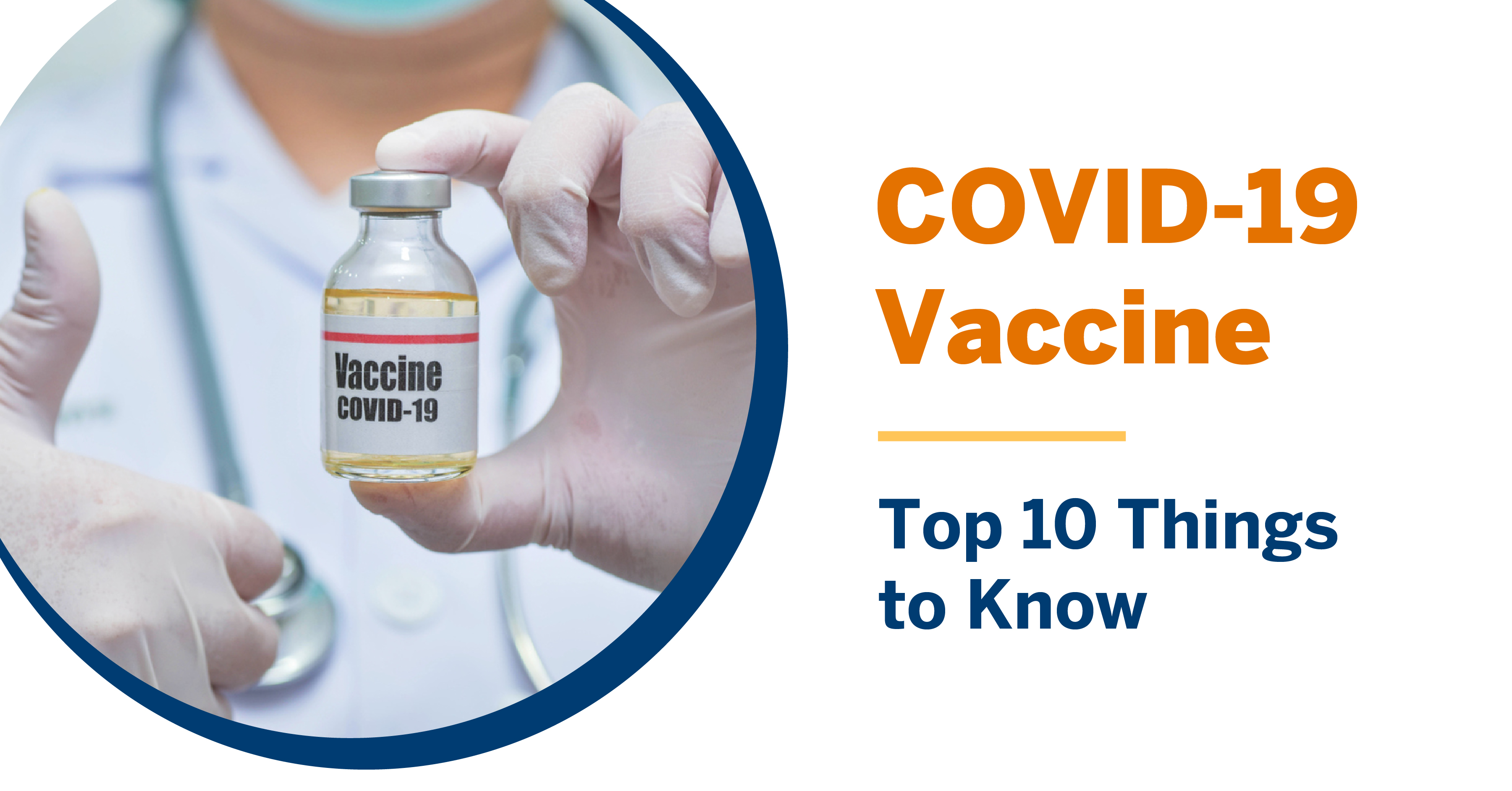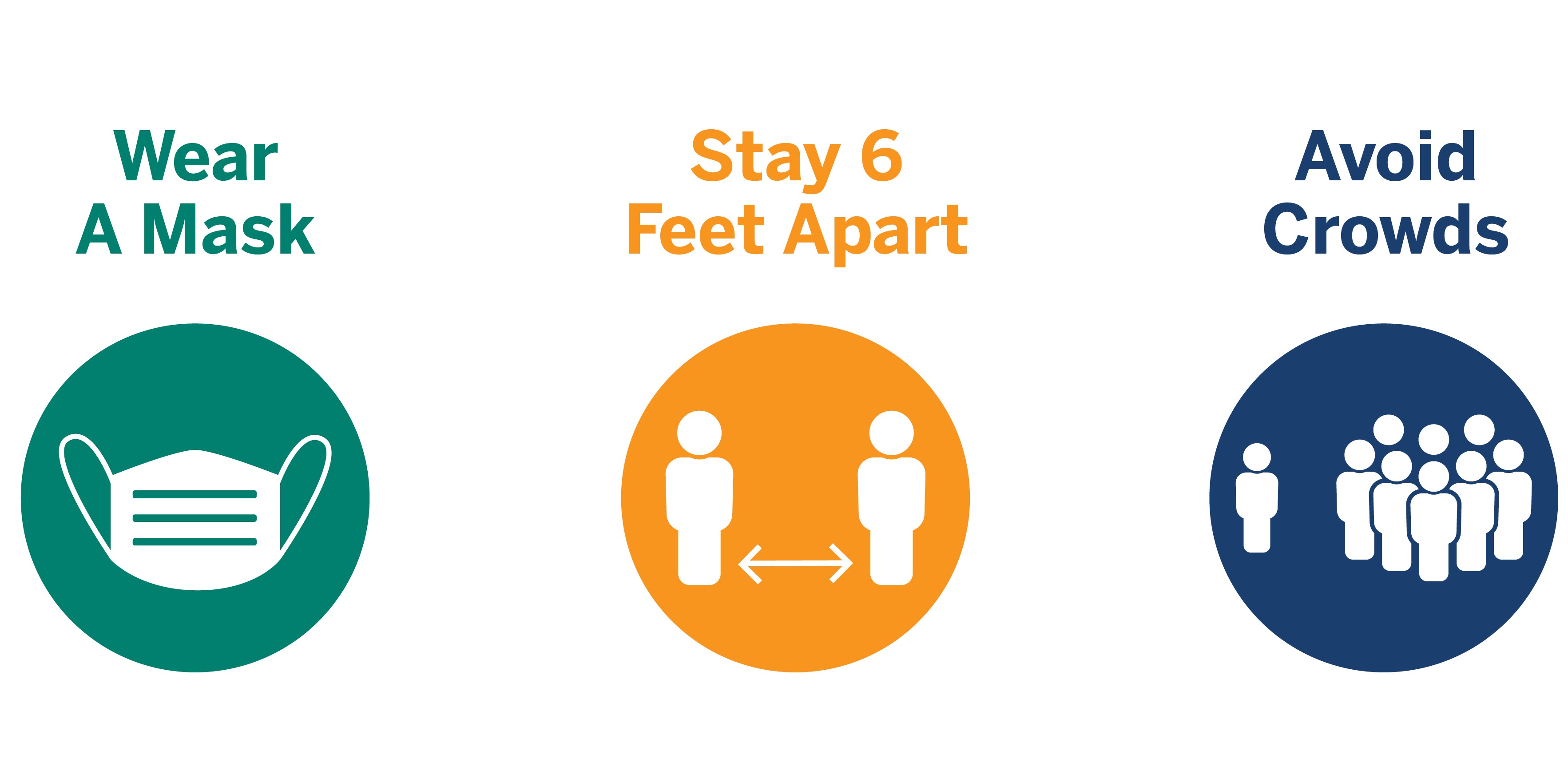
While the new year brings record surges of cases across the United States (according to the New York Times more than 25 million people have been infected with coronavirus to date), there is hope for a healthier world ahead. A national rollout of the COVID-19 vaccines has begun — the first step toward protecting our communities from a virus that continues to devastate the country.
But it’s natural for many of us to feel hesitant about a new vaccine. Is it too soon to know if it’s safe? Do the risks of the vaccine outweigh the possibility of getting the virus? As we sift through the news and social media, how do we separate fact from misinformation?
Here’s what we know.
The Centers for Disease Control and Prevention (CDC) is a go-to resource for trusted, up-to-date, reliable information. Here is some good-to-know info based on some of the most commonly asked questions people ask the CDC about the vaccine.
1. The vaccines will protect you from getting sick with COVID-19.
A COVID-19 vaccine helps reduce the risk of illness from COVID-19 by working with the body’s natural defenses to safely develop protection (immunity) to the virus.
Protecting yourself from getting sick is important because even though many people with COVID-19 have only a mild illness, others may get a severe illness, have long-term health effects, or even die. There is no way to know how COVID-19 will affect you, even if you don’t have an increased risk of developing severe complications.
2. Expansive clinical studies indicate that the vaccines are over 94% effective.
The U.S. Food and Drug Administration (FDA) has granted Emergency Use Authorizations (EUA) for two COVID-19 vaccines: Pfizer/BioNTecH and Moderna. Both vaccines have been shown to be effective based on large clinical trials by both manufactures. The vaccine developed by Pfizer has been studied in approximately 43,000 people, with 95% effectiveness. The Moderna studies included 30,000 people, with 94.5% effectiveness. (Note: No vaccine is 100% effective.)
3. The U.S. vaccine safety system ensures that all vaccines are as safe as possible.
The clinical trials data demonstrate that the known and potential benefits of these vaccines outweigh the known and potential harms of becoming infected with the COVID-19 virus.
After a vaccine is authorized or approved for use by the FDA, many vaccine safety monitoring systems watch for possible side effects. This continued monitoring can pick up on adverse events that may not have been seen in clinical trials. If an unexpected adverse event is seen, experts quickly study it further to assess whether it is a true safety concern. Experts then decide whether changes are needed in U.S. vaccine recommendations. This monitoring is critical to help ensure that the benefits continue to outweigh the risks for people who receive vaccines.
4. Cost is not an obstacle to receiving the vaccine.
The federal government has committed to making the COVID-19 vaccines free for all Americans, whether you are covered under Medicare, Medicaid or private insurance, or are uninsured.
5. The vaccine will not give you COVID-19.
None of the COVID-19 vaccines contain the live virus that causes COVID-19 so a COVID-19 vaccine cannot make you sick with COVID-19. The vaccines teach our immune systems how to recognize and fight the virus that causes COVID-19. Sometimes this process can cause symptoms, such as fever. These symptoms are normal and are a sign that the body is building protection against the virus that causes COVID-19.
6. If you have already had COVID-19 and recovered, you should still consider getting vaccinated.
Due to the severe health risks associated with COVID-19 and the fact that re-infection with COVID-19 is possible, the vaccines should be offered to you regardless of whether you already had COVID-19 infection.
At this time, experts do not know how long someone is protected from getting sick again after recovering from COVID-19. The immunity that someone gains from having an infection, called natural immunity, varies from person to person.
7. After you get vaccinated, you may have some side effects. This is a normal sign that your body is building protection.
The side effects from COVID-19 vaccination may feel like flu and might even affect your ability to do daily activities, but they should go away in a few days. Common side effects include:
- Soreness around the injection area
- Fever
- Chills
- Tiredness
- Headache
Severe allergic reactions are rare. If you have a history of severe allergic reactions to other vaccines, ask your doctor if you should get a COVID-19 vaccine.
8. The COVID-19 vaccines will not change your DNA.
The mRNA vaccines (eg, Moderna and Pfizer) do not affect or interact with our DNA in any way.
mRNA vaccines work by instructing cells in the body how to make a protein that triggers an immune response. Human cells break down and get rid of the mRNA soon after they have finished using the instructions.
9. Timing: The goal is for everyone to have a chance to receive a vaccine by summer 2021.
The initial phase (Phase 1a) of the COVID-19 vaccination program is nearly complete, which includes healthcare workers and residents of long-term care facilities. Many states have also begun planning or administering for subsequent phases, including Phase 1b (frontline essential workers and individuals 75 years of age and older) and Phase 1c (other essential workers, persons 65–74 years of age, and individuals 16–64 years of age with underlying medical conditions).
While your local health department determines the timing of vaccine distribution based on availability of supply, the goal is for everyone to be able to easily get a COVID-19 vaccine by the middle of 2021.
10. What you can do while you are waiting for your turn.
Continue taking safety precautions and staying informed. Wear a mask, stay 6 feet apart, and avoid large gatherings. The combination of following CDC’s recommendations to protect yourself and others and getting vaccinated will offer the best protection from COVID-19.

Together, we can beat COVID-19!
For more information:
- Visit the CDC COVID-19 Vaccines web page.
- Check with your primary care physician and local health department for the latest vaccine distribution information in your community.


